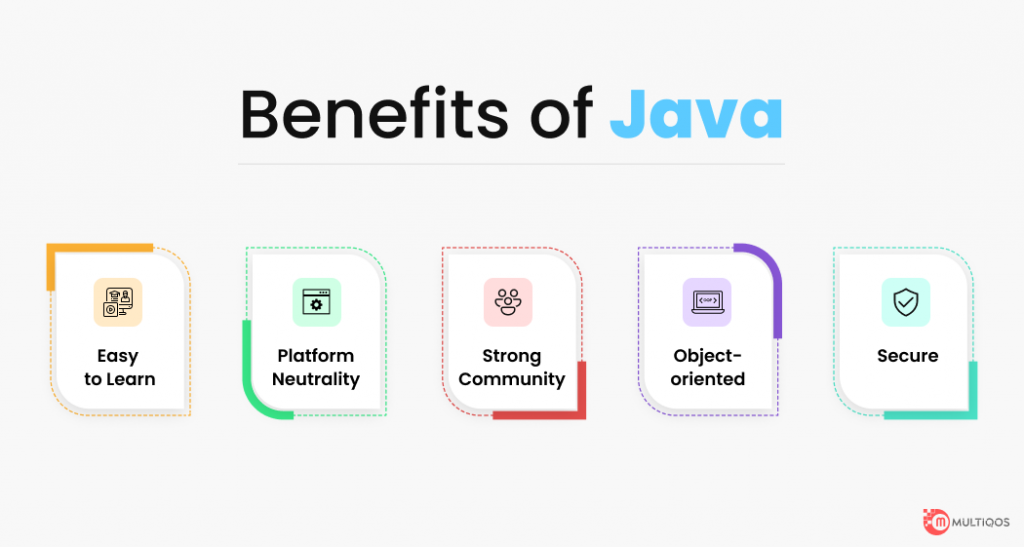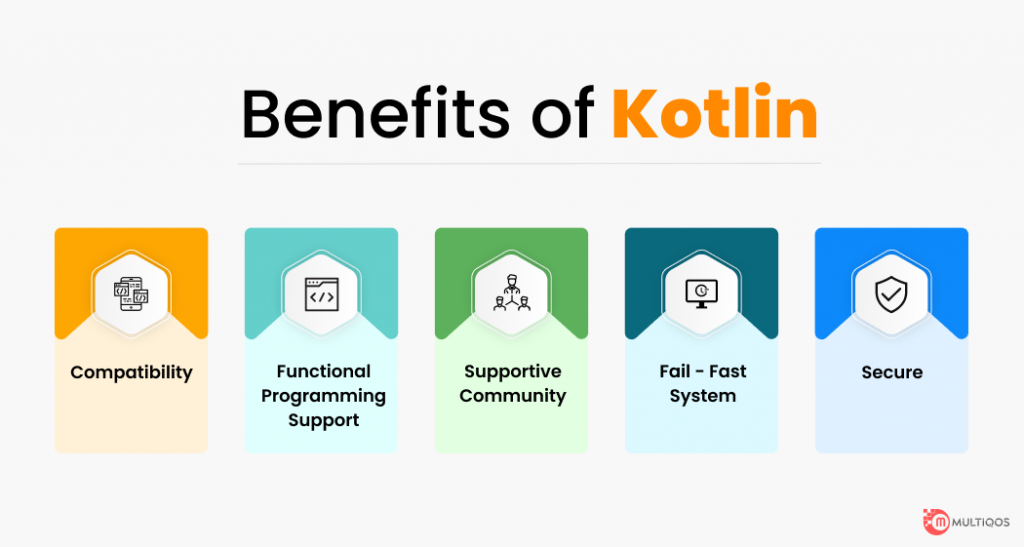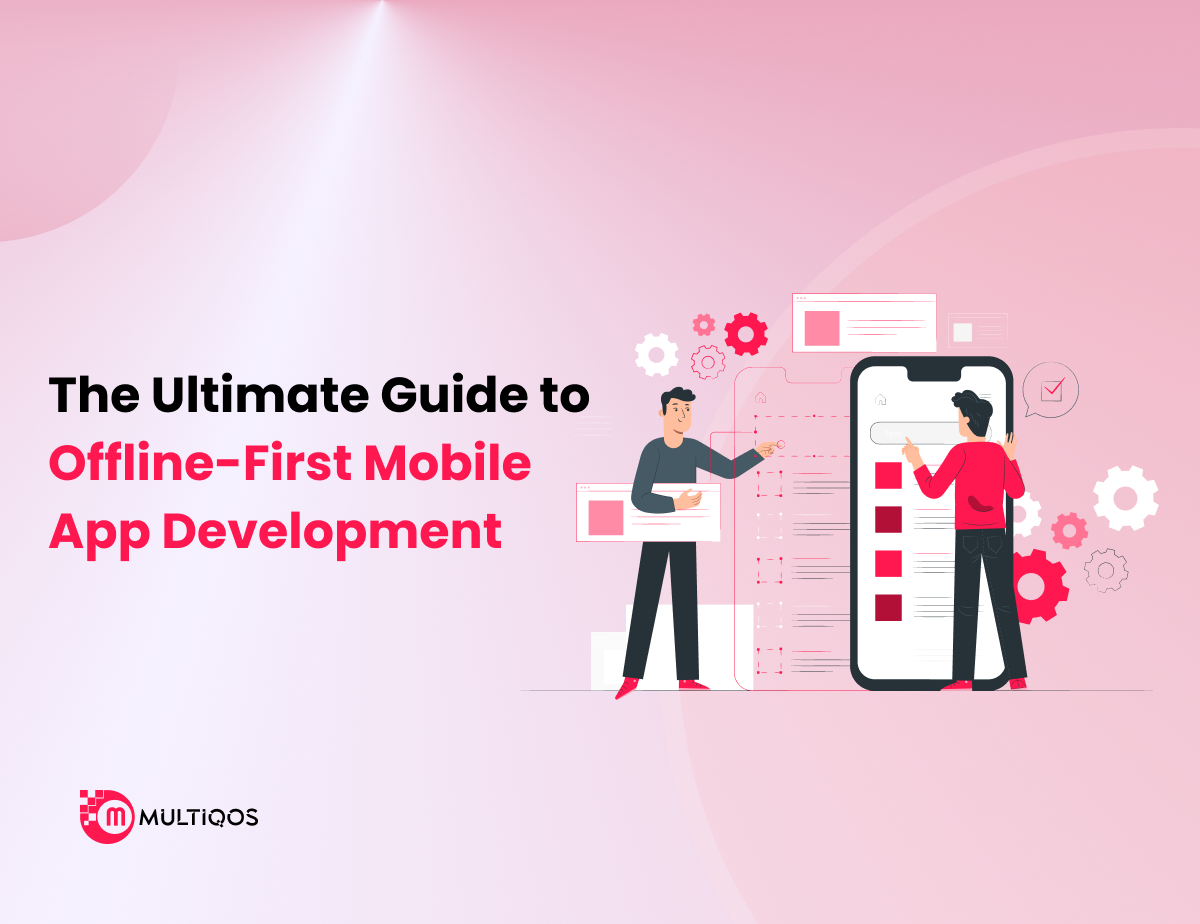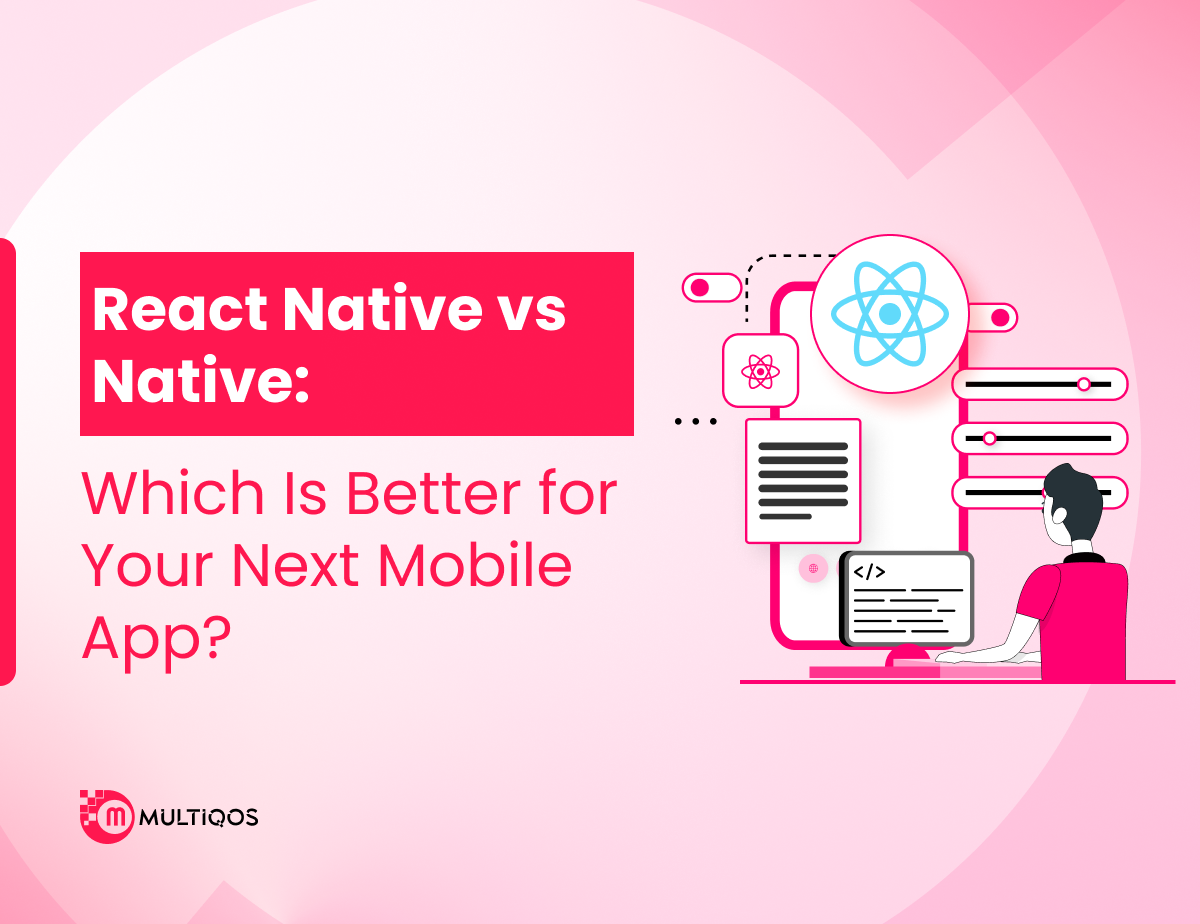Java Vs Kotlin: Which is Better Option for Android App Development in 2025?
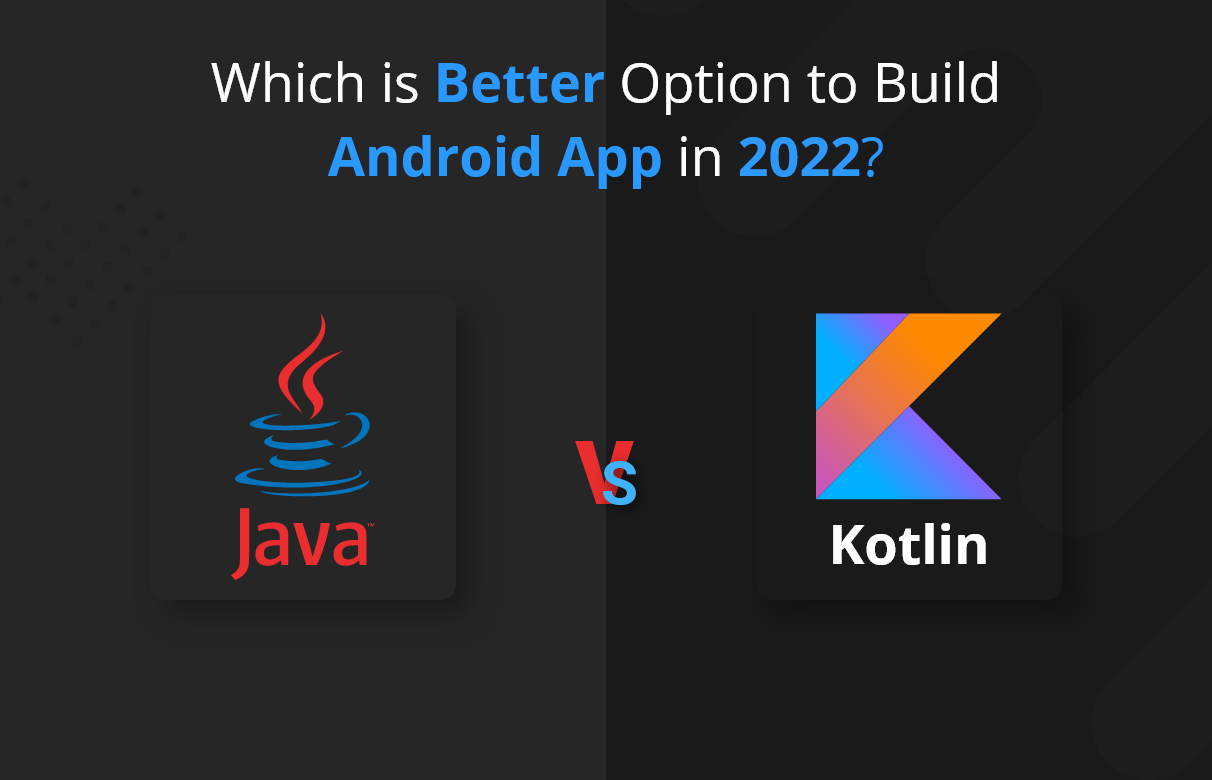
Table of Contents
- Java Vs Kotlin: The Battle of Programming Languages
- What Is Java? - Constant Driving Force in Android App Development
- What Is Kotlin? - Official Google Language for Android Development
- Kotlin Vs Java: a Quick Roundup
- Kotlin Vs Java — An Ultimate Comparison with Examples
- Kotlin Vs Java. When to Use & What Are the Applications Examples
- What Are the Business Benefits of Kotlin?
- Does Kotlin Have a Future?
- Summing Things Up
- FAQ
Java Vs Kotlin: The Battle of Programming Languages
Android app development has become a popular way to grow your business. Still, the programming language you choose is the most critical component in determining whether or not it will be a success. Because it is widely available, Java is the best solution for a more significant number of users. However, the advent of Kotlin into the scene eroded the Android app development language developers’ faith in Java. According to several sources, sticking to Java for Android didn’t provide Google many advantages. As a result, switching to Kotlin felt like the best solution. However, there are numerous factors at play when it comes to choosing between the two Android app development languages. Each factor has to be scrutinized to arrive at the answer.
What Is Java? – Constant Driving Force in Android App Development
Classes and object-oriented programming are the hallmarks of the Java programming language. It’s an application development platform on a computer. As a result, Java is a fast, secure, and trustworthy programming language. It’s frequently used to build Java programs in laptops, storage systems, gaming systems, scientific supercomputers, cellular phones, and other locations. The Java Platform is a collection of tools that help programmers create and run Java programming programs. It comprises a compiler, an operation engine, and a set of resources. In addition, it provides a repository for software and technical documentation.
What are the Benefits of Java?
- Programming in the Java language is straightforward: To minimize development and execution times, Java does not employ pointers. It also comes with user-friendly syntaxes for creating Java applications. Finally, any sophisticated application may be developed using a comprehensive set of APIs (application protocol interfaces), making the language incredibly user-friendly.
- Java is a safe and secure programming language: In Java, explicit pointers are discouraged as a way to prevent security issues and hazards. A pointer is a value that keeps track of another value’s memory location and can be exploited to obtain unauthorized storage control. Remove the idea of pointers to fix the problem. Furthermore, each Java application contains a supervisor to set class permission restrictions.
- Platform Neutrality: A software or technology is deemed independent of the platform only in case it can run on all currently accessible operating systems. A program like Java will have shared data formats and memory areas across all computer systems. Java applications will have particular programs that transform one operating system’s format to another operating system’s format. As a result, Java is considered a platform-independent language.
What are the Challenges of the Java language?
- Java does not have a backup feature: Java is primarily concerned with data storage rather than data backup. Because the software operates on top of the Java virtual machine, it consumes extra memory. This significant flaw causes it to lose user interest and ratings.
- Java is slow and unresponsive: A native language like C or C++ is substantially faster and doesn’t consume as much memory as Java. Because each code has to be interpreted to machine-level code, it is also slower than other languages like C and C++. The JVM’s extra level of compilation and abstraction is responsible for the poor performance. Furthermore, because the garbage collector consumes extra CPU time, it might cause Java to run poorly.
- Machine interaction is reduced: Device involvement is limited: Java lacks precise references and the potential to interface directly with machines, making it unsuitable for applications that must run quickly and effectively with the system. Because of this, there are various GUI builders in Java, however, these are not appropriate for designing complicated user interfaces. When utilizing them, there are several discrepancies.
What Is Kotlin? – Official Google Language for Android Development
Kotlin is an open, free software, statically typed “practical” software platform that combines object-oriented and usable coding features. It was created with the JVM (Java Virtual Machine) and Android in mind. Clarity, interoperability, safety, and tooling support are all priorities. Anonymous functions, closures, generics, higher-order functions, inline functions, lambdas, and tail recursion are also supported by the language. Kotlin, in other words, offers all of the benefits and characteristics of a functional language. Kotlin versions for JavaScript ES5.1 and Android native development kit (using LLVM) for various processors are also available.
What are the Benefits of Kotlin?
- Compatibility: The Kotlin programming language is interoperable. This implies that Java and Kotlin are close enough that you can utilize Java commands and libraries in a Kotlin project. Switching to Kotlin is simple. Because Kotlin is backward compatible with Java, you won’t have to rewrite all your code. You may gradually convert an application to Kotlin.
- Coding with Kotlin is shorter and easier to understand: You gain shorter code and higher readability using Kotlin. The Kotlin language’s official developers have worked hard to keep the language as compact as feasible. Coding mistakes are less likely when codes are shorter. You may concentrate on the code’s quality and logic rather than avoiding lengthy code-related faults. Kotlin is succinct, allowing you to save time that might otherwise be spent creating boilerplate Java code.
- Kotlin code is more secure: Kotlin code is safer than Java code since it is meant to prevent typical programming mistakes, meaning fewer breakdowns and application crashes. Specific mistake reasons are more likely to recur while using Java. Kotlin encourages Android developers to consider possible problems with their code, resulting in more resilient code.
What are the Challenges of the Kotlin language?
- There are fewer Kotlin experts: Even though Kotlin is extremely popular among developers, there are still a limited number of programmers accessible in this industry. The reality is that Kotlin developers require an in-depth understanding of the language, yet it is complicated to locate competent Kotlin specialists nowadays.
- Compilation speed is variable: As far as incremental builds go, Kotlin has a distinct advantage over Java. Although Java is the obvious winner when it comes to clean builds, you must keep in mind. According to several Android app development language for developers and programmers, one of the leading and most significant limitations of Kotlin is the slower compilation performance. Kotlin can outperform Java in terms of compilation speed in rare circumstances, although it is often substantially lower.
- Learning resources are limited: While Kotlin’s growth and use as an Android first-class language is fast increasing, there is a small developer community accessible to learn the language from or help with problems that arise during development. As a result, fewer resources are accessible for learning the language and training developers. As a result, getting solutions to any problems that may emerge during the Android application development process is challenging.
Kotlin vs Java: A Quick Roundup
First and foremost, both Java and Kotlin compile to bytecode, notwithstanding their differences. As a result, developers may call Kotlin code from Java or vice versa, allowing both Android development languages to be utilized in the same project. As you’ve seen, Kotlin has a lot of advantages when it comes to Android programming, but is it better than Java? Although Kotlin is quite popular among programmers, just a few programmers work in this field. The reality about Kotlin is that it requires an in-depth understanding of the language, yet finding qualified Kotlin professionals is becoming increasingly difficult.
Kotlin vs Java — An Ultimate Comparison With Examples
- The Null Pointer Exception is no longer a problem.
Java programmers are frequently frustrated with NullPointerExceptions. By default, all kinds in Kotlin are non-nullable (unable to retain a null value). In Kotlin, a build time error is displayed if the code tries to utilize or return null. For example,
var a: String = “abc”
// compilation error
a = null
- FindViewByIds is not required: it is used to locate the first descendent view with the supplied ID. For example,
Java
TextView text = (TextView) findViewById(R.id.textView); text.setText(“Hello World”);
Kotlin
textView.setText(“Hello World”)
- Data Class: You frequently design classes to contain data. Often, the data in these classes may be used to derive certain standard operations. This sort of class is referred to as data class in Kotlin and is tagged as data. For example,
data class User(val name: String, val age: Int)
So, Who Took The Crown?
Kotlin is quickly becoming the next Android programming language. Its popularity stems from its essential features that make developers’ lives simpler, such as extension functions, lambda expressions, high-order functions, coroutines, and no NullPointerExceptions. These are just a few of the reasons why it’s reasonable to say that Kotlin is superior to Java for Android development and will continue to do so in the future.
Kotlin Vs Java. When to Use & What Are the Applications Examples
Kotlin, a modern computer program and statically typed computer language, was invented by JetBrains. It’s ideal for building server-side apps since it allows users to write more succinct code than Java, allowing Android app developers to solve problems with fewer lines of code. Engineers can develop, read, and alter code more effectively using Kotlin to improve code maintainability and readability. When comparing the advantages of Java vs Kotlin, developers may utilize Kotlin for everything where Java is currently used, such as server, client, web apps, and Android application development.
Verdict on Java vs Kotlin Battle
- In Kotlin, incidental conversions are not supported, although they are in Java.
- In Kotlin, primitive type variables are objects, but primitive type variables in Java are not. Objects are not primitive form variables.
- Lambda Expression is supported in Kotlin but not in Java.
- Null variables and objects do not exist in Kotlin; nonetheless, null variables and objects are part of the Java programming language.
- Although they are in Java, static members aren’t usually supported in Kotlin.
- Users may develop their extension functions in Kotlin but not in Java.
- When it comes to object-oriented programming, Java has a monopoly, whereas Kotlin incorporates both that and operational programming features.
Null protection, unchecked exceptions, property control, smart casts, and lazy loading are just a few of the perks of Kotlin. In the Kotlin versus Java competition, Kotlin offers several other valuable characteristics that make it a good programming language.
What are the Key Features of the Kotlin Language?
- A straightforward and clear syntax
- Classifications of data.
- Extending data groups
- Null security
- Overloading of the operator
- System with a single kind (almost).
- The Singleton pattern and top-level objects
- User-defined functions
What are the Business Benefits of Kotlin?
- Cost-effective Adoption: The lack of or low cost of adoption associated with Kotlin is a significant reason businesses prefer it to other Android programming languages. Because it is open-source, there is no need to pay for a license. Second, in comparison to other programming languages, Kotlin is quite simple to learn for programmers.
- Use in Any Setting: If required, you may port your app across platforms thanks to Kotlin’s growing generality. Also, the framework is fresh, efficient, and interesting, which attracts talented programmers.
- Dependable and Secure: Another of Kotlin’s strongest advantages, as previously said, is that it is reasonably safe. The Null Safe method makes it simple to avoid issues like “NullPointException.” You may even use this method to avoid using nullable types. Errors may be removed and code can be made easier to debug and operate.
Does Kotlin Have a Future?
Kotlin is currently considered a recommended programming language for Android by Google. To be sure, Google’s formal sponsorship of Kotlin will help it catch up to Java’s popularity (or even more so). But don’t forget that Java isn’t only for Android; it has an extensive ecosystem, and it’ll take a long time for Java developers to switch to Kotlin for all of their Java-based products, which won’t always make sense from a commercial standpoint. It’s fair to assume that those two languages will coexist for a long time.
Also Read: Top Business Challenges and How MultiQoS Is Solving Them
Summing Things Up
Kotlin is swiftly establishing itself as a better programming language for mobile app development, giving developers various opportunities to experiment with cutting-edge programming. It’s safe to say that Kotlin is changing the game when it comes to what a programming language can do. To summarise, the dispute over whether language is superior is not simple and will almost certainly result in lively debates. Furthermore, there are additional factors in play than just the distinctions in the languages, like the language used by the company and how familiar programmers are with Kotlin or Java.
MultiQoS provides high-value, feature-rich Android app solutions to businesses in a variety of industries all over the world. Contact us today for a free consultation on developing the next consumer-pleasing mobile application for your company.
Let’s Create Big Stories Together
Mobile is in our nerves. We don’t just build apps, we create brand. Choosing us will be your best decision.
FAQ About Java vs Kotlin
In 2021, Kotlin will be the primary language for Android development. Although both Java and Kotlin can be used to create performant and valuable apps, Google’s frameworks, tools, documenting, and study materials continue to favour Kotlin, making it the better language for Android today.
Kotlin is a programming language for Android that is concise, expressive, and type- and null-safe. It readily interacts with the Java language, allowing Java developers to continue using it while progressively adding Kotlin code and exploiting Kotlin resources. Furthermore, many Android developers have discovered that Kotlin makes development faster and more enjoyable; thus, you aim to provide more robust support for Kotlin users. More about Android’s Kotlin-first strategy may be found here.
No, even if the proper answer is contingent on the performance metrics in question. The functionality of the languages is relatively close during runtime. Kotlin, on the other hand, is noticeably slower than Java at compile time. The severity of the slowness is determined by several factors, including the use of annotation processors and the availability of mixed Java and Kotlin source libraries.
Get In Touch

